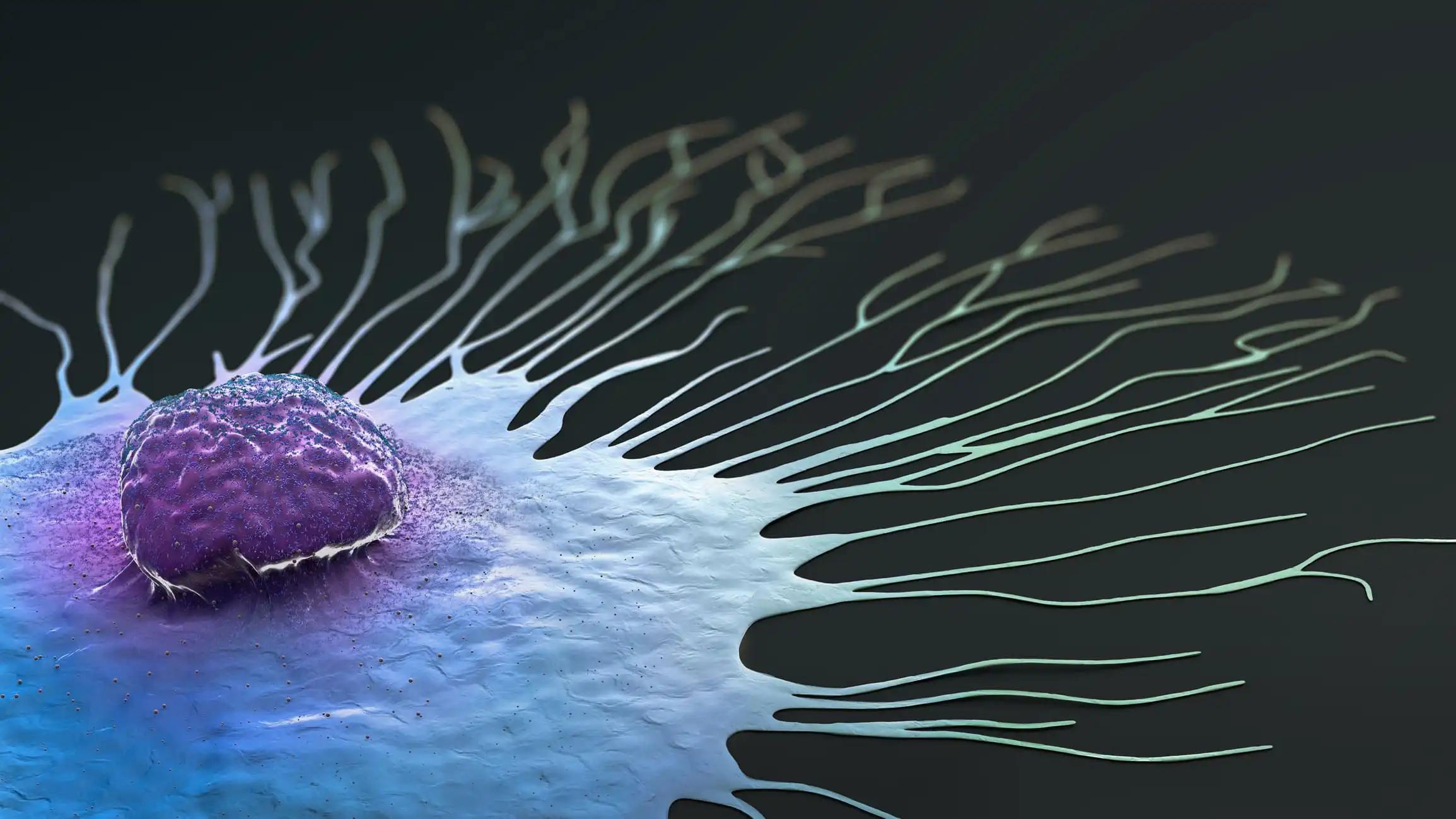KEY TAKEAWAYS
- The phase 2 study was performed to determine the safety and efficacy of zanidatamab for women w/ node neg stage I HER2+ BC.
- The trial’s primary objective was to evaluate the efficacy of zanidatamab in terms of pathologic complete response (pCR), with secondary objectives including other pathologic responses, radiological response, and the drug’s safety profile.
- Neoadjuvant treatment with zanidatamab for three months showed significant efficacy and had an acceptable safety profile in patients with stage I node-negative HER2+ BC.
The prognosis for patients (pts) with stage I, node-negative HER2-positive breast cancer (BC) who received 12 doses of weekly paclitaxel and one year of trastuzumab treatment is excellent, with a 10-year recurrence-free survival rate of 96%. Clinical trials are underway to explore reducing chemo and utilizing targeted therapy alone. Zanidatamab, a novel monoclonal antibody, is being examined in these trials. It is a humanized, bispecific antibody that targets both the juxtamembrane extracellular domain (ECD4) and the dimerization domain (ECD2) of HER2. This dual targeting leads to HER2 clustering, modulating signaling, and promoting immune activation. Zanidatamab has demonstrated promising antitumor activity in heavily treated HER2-positive metastatic breast cancer pts with an acceptable safety profile.
Patients with clinically node-negative HER2-positive breast cancer (1 to 3 cm in size) were registered in this investigator-initiated clinical trial. Eligible pts were identified based on HER2-positive BC status, defined as either HER2 3+ by immunohistochemistry (IHC) or IHC 2+ with positive in situ hybridization (ISH). Before surgery, they underwent six cycles of zanidatamab administered every two weeks. Those with hormone receptor-positive tumors also received neoadjuvant endocrine therapy, with postmenopausal pts receiving letrozole at a daily dose of 2.5mg and premenopausal pts receiving tamoxifen at a daily dose of 20mg or gonadotropin-releasing hormone (GNRH) in combination with letrozole at a daily dose of 2.5mg, depending on the treating physician’s preference. The key objective of the trial was to assess efficacy, measured by achieving a pathologic complete response (pCR). Secondary objectives were evaluating pathologic response using the residual cancer burden (RCB) criteria, radiological response assessment, and assessing the safety profile of zanidatamab.
Eleven pts with HER2+BC were included in the study. The median age was 61 yrs, aged between 30 and 72 years. The median tumor size was 2.2 cm, ranging from 1 to 3 cm. Four pts were pre-menopausal, and six had tumors larger than 2 cm. Three were administered tamoxifen, while three pts were given letrozole. All pts completed the entire course of six cycles of zanidatamab and underwent surgery. Four (36%) reported pCR, 3 RCB1 (28%) and 4 RCB2 (36%). This outcome met the success standards set by Simon’s design, aimed to achieve a pCR rate of 25% against a null rate of 5% or lower, with three or more pts out of the seventeen achieving pCR. The treatment was generally well-tolerated, with no reports of grade 3 or 4 toxicities. Only one patient experienced a minor infusion-related reaction with grade 2 acne; one had grade 2 diarrhea.
Neoadjuvant zanidatamab demonstrated notable effectiveness for three months, with a substantial pCR and a significant proportion of pts achieving RCB-1 status (64%). This treatment has also shown a favorable safety profile in pts with stage I, node-negative HER2+BC. The trial is ongoing and has been adapted to extend the treatment duration to five months (ten cycles).
Clinical Trial: https://classic.clinicaltrials.gov/ct2/show/NCT05035836
Valero, V., Mouabbi, J., Alonzo, H., Ilheme, A.N., Murthy, R., Huang, X., Qiao, W., Patel, M., Pohlmann, P.R., Rauch, G., Checka, C., Hunt, K., Tripathy, D., Meric-Bernstam, F., Symmans, F. NEOADJUVANT ZANIDATAMAB FOR STAGE I NODE NEGATIVE HER2 POSITIVE BREAST CANCER (BC). Annals of Oncology (2023) 8 (1suppl_4): 101220-101220. 10.1016/esmoop/esmoop101220.



